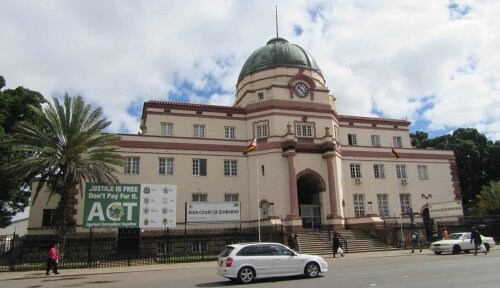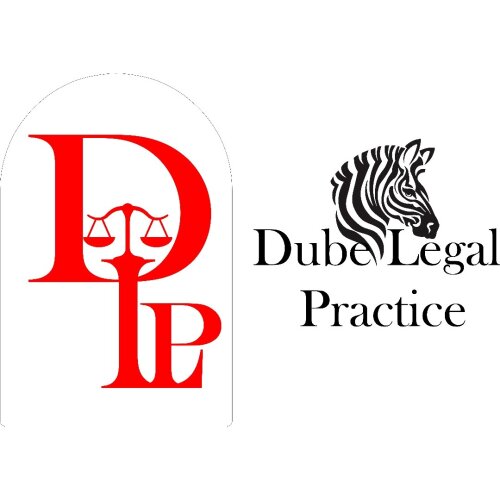Best Education Law Lawyers in Zimbabwe
Share your needs with us, get contacted by law firms.
Free. Takes 2 min.
Or refine your search by selecting a city:
List of the best lawyers in Zimbabwe
About Education Law in Zimbabwe
Education Law in Zimbabwe encompasses the legal framework that governs the education sector, outlining the rights and responsibilities of educators, students, and educational institutions. The primary goal is to ensure quality education is accessible to all and to set standards for educational services. This branch of law addresses issues such as compulsory education, quality standards, equal access, governance of educational institutions, and rights of students and educators. It is rooted in the principles set out in the Constitution of Zimbabwe and further elaborated by the Education Act and associated regulations.
Why You May Need a Lawyer
Individuals might seek legal advice in the realm of Education Law in Zimbabwe for various reasons. Common situations include disputes about student admissions, expulsions, or suspension procedures that appear unfair or discriminatory. Legal guidance may also be required for cases involving school governance conflicts, teacher employment issues, violations of student rights, or disputes over educational content and curricula. Additionally, parents and guardians may seek legal assistance to address issues regarding access to education, especially for children with special needs or those in remote areas.
Local Laws Overview
Education Law in Zimbabwe is primarily governed by the Education Act, which sets out to provide all children with the right to education and establishes educational standards and frameworks. Key aspects include the requirement for children to attend school until at least 16 years of age, the implementation of national curricula, and the regulation of both public and private schools. The law also outlines the powers and duties of the Ministry of Education and school authorities in managing educational institutions. Additionally, there are provisions regarding the regulation of school fees, student discipline procedures, and the inclusion of marginalized groups in the education system.
Frequently Asked Questions
What age is compulsory education required until in Zimbabwe?
In Zimbabwe, compulsory education is required until the age of 16, as per the Education Act.
Are there laws protecting students with disabilities?
Yes, the laws mandate inclusive education and the provision of necessary accommodations to ensure students with disabilities have equal access to education.
Can a school refuse admission to a student based on their religion or race?
No, discrimination based on religion or race is prohibited, and all students are entitled to equal access to educational opportunities.
What are the legal guidelines regarding school fees?
Schools are regulated by the Ministry of Education, and there are guidelines regarding the setting and adjustment of school fees to ensure transparency and fairness.
Is homeschooling legal in Zimbabwe?
Yes, homeschooling is a recognized form of education, but parents must adhere to statutory guidelines and requirements overseen by the Ministry of Education.
Who governs the educational institutions in Zimbabwe?
The Ministry of Education governs all educational institutions, setting standards and policies that schools must follow.
What legal recourse do students have if they face unfair disciplinary action?
Students can appeal disciplinary decisions, and if necessary, take legal action to ensure their rights are respected, often with the assistance of a legal professional.
Are private schools subject to the same regulations as public schools?
While private schools have some autonomy, they must still comply with national education standards and regulations set by the government.
What should I do if my child experiences bullying at school?
Report the incident to the school authorities. If the issue persists or is inadequately addressed, legal advice may be necessary to ensure protective measures are implemented.
How can I resolve a conflict with a school over my child's education?
Initial steps include dialogue with the school administration. If resolution isn't achieved, legal counsel can provide guidance on pursuing formal dispute resolution mechanisms.
Additional Resources
For more information or assistance, individuals can contact the Ministry of Primary and Secondary Education, the Zimbabwe Human Rights Commission, or educational NGOs like the Zimbabwe Education Support Network. Legal Aid Clinics at law schools can also offer pro bono services to those in need of legal assistance.
Next Steps
If you require legal assistance in Education Law, consider contacting a lawyer specializing in this field to discuss your case. You can search for legal professionals through the Law Society of Zimbabwe or seek recommendations from educational advocacy groups. Gather all necessary documentation related to your case before your consultation. If affordability is a concern, consider reaching out to legal aid organizations that may offer services at reduced or no cost.
Lawzana helps you find the best lawyers and law firms in Zimbabwe through a curated and pre-screened list of qualified legal professionals. Our platform offers rankings and detailed profiles of attorneys and law firms, allowing you to compare based on practice areas, including Education Law, experience, and client feedback.
Each profile includes a description of the firm's areas of practice, client reviews, team members and partners, year of establishment, spoken languages, office locations, contact information, social media presence, and any published articles or resources. Most firms on our platform speak English and are experienced in both local and international legal matters.
Get a quote from top-rated law firms in Zimbabwe — quickly, securely, and without unnecessary hassle.
Disclaimer:
The information provided on this page is for general informational purposes only and does not constitute legal advice. While we strive to ensure the accuracy and relevance of the content, legal information may change over time, and interpretations of the law can vary. You should always consult with a qualified legal professional for advice specific to your situation.
We disclaim all liability for actions taken or not taken based on the content of this page. If you believe any information is incorrect or outdated, please contact us, and we will review and update it where appropriate.
Browse education law law firms by city in Zimbabwe
Refine your search by selecting a city.















